Don't stop eating meat, but do consider no longer consuming meat produced in a CAFO. What is a CAFO??? It stands for "confined animal feeding operation" and essentially turns raising animals into a factory product focused on short term profit as the ultimate goal. Therefore, the lives of CAFO raised animals is short and cruel. You may be wondering what are some specific examples. Are you really ready?
The animals live much shorter lives generally coinciding with the animals productivity and size relative to profit. The animals live in very tight pens that do not allow for normal healthy movement often crippling the animals. The animals are not free to move and eat the diet that is natural to them moving freely in a grass field. To assist the animals in achieving slaughter weights more quickly, growth hormones may be used as well as feeds that are not natural to the animal. The conditions often lead to disease so the animals are then in need of pharmaceuticals and antibiotics. Unnatural lighting cycles do not mimic the normal rhythm of the night and day and are used to increase production. The smell of these living conditions that comes from living in too close of quarters and the abnormal amount of manure per square foot would turn any of us away from eating meat produced in this fashion.
What are some of the ramifications of consuming CAFO produced meat other than a cheaper price at the cash register? And remember, that cheaper price is an illusion when one considers the costs from a deeper sense of economics.
The environmental costs are enormous and include soil loss, groundwater contamination, deforestation, increases in the use of fossil fuels and the depletion of deep aquifers. According to Dr. David Pimentel of Cornell University, the World Bank and the UN Food & Ag Organization CAFO based animal production is a much more inefficient use of resources:
- CAFO protein production requires 8x as much fossil fuel as plant protein
- CAFO livestock consumes 5x as much grain as the US human population
- CAFO beef production requires 100,000 liters of water to produce 1 kg of beef vs. 1 kg of wheat requires just 900 liters of water
- CAFO raised animals according to the United Nations are responsible for 80% of deforestation to create new farmland in the tropics, ie. Amazon
- CAFO livestock produce 18% to 51% of total global warming greenhouse gases
Consider the Ogallala water aquifer in our own midwest. It is situated under eight states: South Dakota, Nebraska, Wyoming, Colorado, Kansas, Oklahoma, New Mexico and Texas. It is big! But it is threatened severely. This aquifer provides the majority of water used in these eight states for residential, industrial and agricultural use. We are presently using the water from the Ogallala aquifer faster than the rains can replenish it. Not only are we using it too fast by supporting CAFO animal production but we are polluting the aquifer with chemicals that negatively effect human health, wild animal health and their ecosystems.
CAFOs not only destroy environmental resources but we are feeding these CAFO animals grain that could be used to feed our world's poor and starving peoples. The calories from this grain could be used to feed people rather than mass produced animal protein.
So, what am I asking you to do? I am not asking you to stop eating meat. But, I am asking you to consider purchasing meat from local farmers that are raising animals in a natural and sustainable manner. Will this be more expensive? Yes, but only at the point of purchase at the cash register. When one considers a deeper sense of economics, it is less expensive. We are paying for CAFO meat not just at the cash register but in taxes that goes to environmental clean up, health insurance costs and our personal health. Local, sustainably raised meat and dairy is environmentally and socially more responsible, but it is also simply healthier meat. Animals that eat a diversity of grasses and bugs rather than a diet of grain, which is not even the natural feed of these animals, are more nutrient dense, have higher levels of omega 3 fatty acids, are lower in fat, lower in total calories, and have healthier cholesterol ratios. It does not mean you need to spend more on meat. A great way to keep your budget on target is to spend the same amount on meat but simply eat smaller portions of meat and eat meat less often but when you do you are eating better tasting, more healthy meat and caring for our shared world better. Eating less meat also means you will be healthier when you replace those calories with a diversity of plants.
Think about it.

